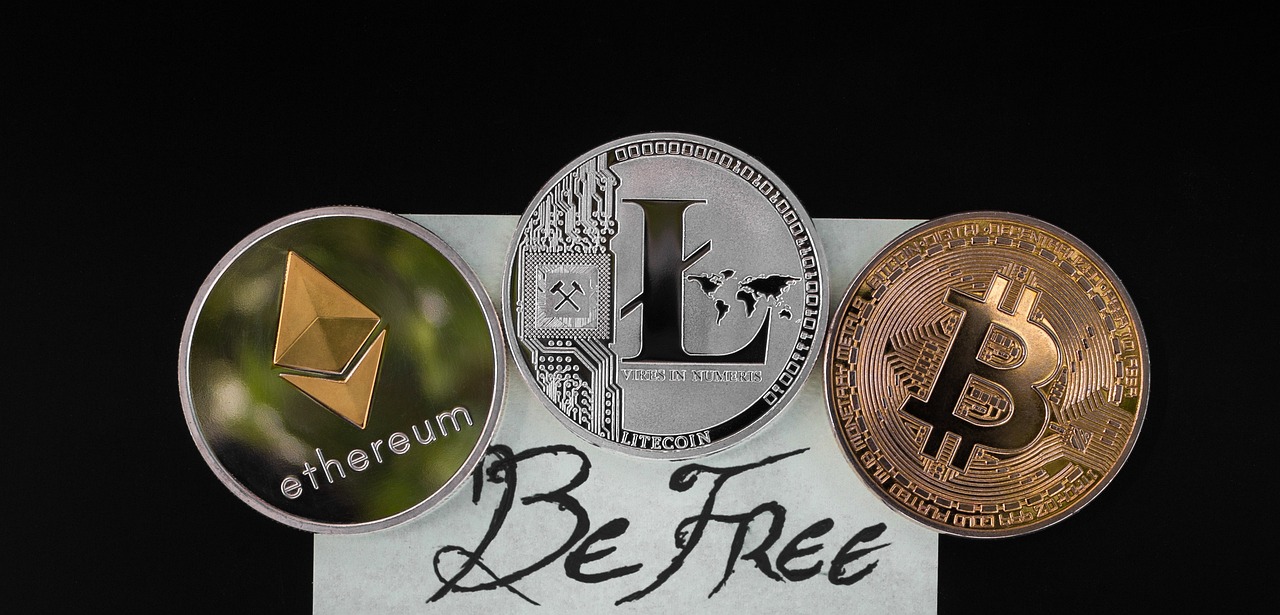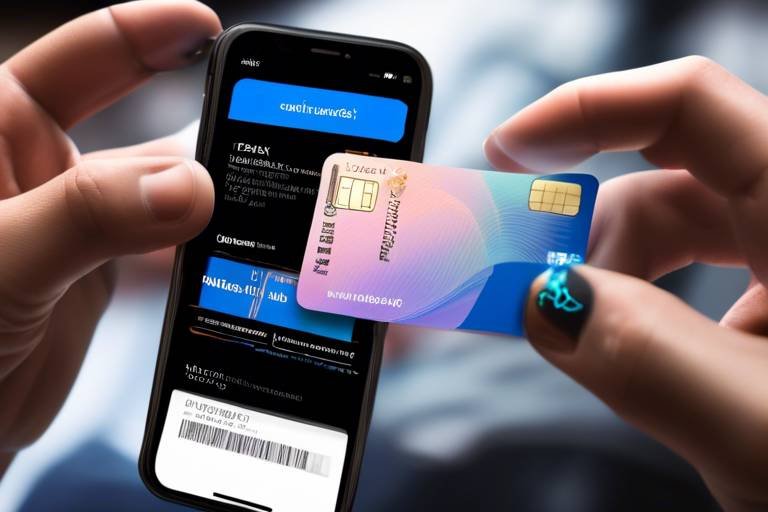The Evolution of Crypto Wallets - Past, Present, and Future
The world of cryptocurrency has exploded in popularity over the past decade, and at the heart of this digital revolution lies the concept of crypto wallets. But what exactly are they? Simply put, crypto wallets are tools that allow users to store, manage, and transact with their cryptocurrencies. Just as a physical wallet holds your cash and cards, a crypto wallet holds your digital assets, albeit in a much more complex manner. Understanding the evolution of these wallets not only sheds light on their importance but also helps us appreciate the journey of cryptocurrency itself.
The story of crypto wallets began with the inception of Bitcoin in 2009. The first wallet, known as the Bitcoin Core wallet, was a desktop application that required users to download the entire Bitcoin blockchain to operate. This was a significant step in the digital currency landscape, but it was also cumbersome. As the cryptocurrency landscape expanded, so did the need for more user-friendly solutions. This need led to the development of various types of wallets, each catering to different user needs and preferences.
Fast forward to today, and we see an array of wallet options available, including hardware wallets, software wallets, mobile wallets, and even paper wallets. Each type of wallet has its own unique features and benefits, designed to address the diverse requirements of cryptocurrency users. For instance, while hardware wallets are lauded for their security, software wallets provide greater convenience. This balance between security and usability is crucial, especially as more people begin to explore the world of digital currencies.
Looking ahead, the future of crypto wallets is incredibly promising. With advancements in technology, we can expect to see enhanced security measures, seamless integration with other financial services, and a growing influence from decentralized finance (DeFi). As the landscape continues to evolve, so too will the tools we use to interact with cryptocurrencies. The next generation of wallets may very well redefine how we perceive and utilize digital assets.
In conclusion, the evolution of crypto wallets reflects the broader journey of cryptocurrency itself. From the rudimentary beginnings of the Bitcoin Core wallet to the sophisticated, multi-functional wallets we have today, the progress has been nothing short of remarkable. It's an exciting time to be a part of this digital revolution, and as we look to the future, the possibilities seem endless.
- What is a crypto wallet? A crypto wallet is a digital tool that allows users to store and manage their cryptocurrencies securely.
- What are the different types of crypto wallets? The main types include hardware wallets, software wallets, mobile wallets, and paper wallets.
- Are hardware wallets safe? Yes, hardware wallets are considered one of the safest options for storing cryptocurrencies due to their offline nature.
- Can I use multiple wallets? Absolutely! Many users choose to use a combination of wallets for different purposes, such as security and convenience.
- What is the future of crypto wallets? The future is likely to bring improved security features, integration with financial services, and advancements in usability.

History of Crypto Wallets
Understanding the origins of crypto wallets helps contextualize their evolution. The journey of cryptocurrency began in 2009 with the launch of Bitcoin by the mysterious figure known as Satoshi Nakamoto. Initially, there was no need for wallets as Bitcoin was primarily used by tech enthusiasts and early adopters. However, as interest grew, the need for a secure way to store and manage these digital assets became apparent.
The first wallets were quite rudimentary. They were essentially software applications that allowed users to store their private keys—the essential element for accessing and managing cryptocurrencies. These early wallets were often installed on a user’s computer, making them vulnerable to malware and hacking attempts. The first notable software wallet was Bitcoin Core, which allowed users to send and receive Bitcoin while also providing a full node feature to help maintain the network.
As the cryptocurrency landscape evolved, so did the wallets. By 2011, the introduction of web wallets brought a new dimension to crypto storage. These online platforms allowed users to access their cryptocurrencies from any device with an internet connection. While this increased convenience, it also raised significant security concerns, as users had to trust third-party providers to safeguard their assets.
In response to these vulnerabilities, the concept of hardware wallets emerged around 2013. These physical devices, designed to securely store private keys offline, quickly became a favorite among serious investors looking to protect their assets from cyber threats. The transition from software to hardware wallets marked a pivotal moment in the evolution of crypto wallets, emphasizing the importance of security in the digital currency space.
Today, the landscape of crypto wallets is incredibly diverse, encompassing various types and functionalities. From mobile wallets that allow users to make transactions on the go to multi-signature wallets that require multiple approvals for transactions, the options are tailored to meet different user needs and preferences. The evolution of these wallets reflects a broader trend in the cryptocurrency market—an ongoing quest for improved security and usability.
In summary, the history of crypto wallets is a fascinating tale of innovation and adaptation. As cryptocurrencies continue to gain traction in the mainstream financial ecosystem, the wallets that support them will undoubtedly evolve further, incorporating advanced technologies and security measures to meet the demands of an ever-growing user base.
- What is a crypto wallet? A crypto wallet is a digital tool that allows you to store and manage your cryptocurrencies securely.
- Are hardware wallets safe? Yes, hardware wallets are considered one of the safest options for storing cryptocurrencies due to their offline storage capabilities.
- Can I use multiple types of wallets? Absolutely! Many users utilize a combination of wallets for different purposes, such as a hardware wallet for long-term storage and a mobile wallet for everyday transactions.
- What are the risks associated with software wallets? Software wallets can be vulnerable to hacking and malware, so it's crucial to choose reputable providers and implement strong security measures.

Types of Crypto Wallets
When it comes to managing your cryptocurrencies, understanding the different types of crypto wallets is crucial. Just like you wouldn't store your cash in a place that's easy to access for thieves, the same principle applies to your digital assets. Each type of wallet serves a unique purpose, catering to various user needs and preferences. Let's dive into the main categories: hardware wallets, software wallets, mobile wallets, and paper wallets. Each of these has its own set of features, benefits, and drawbacks.
Hardware wallets are physical devices that provide a secure way to store your cryptocurrencies offline. Think of them as the safe deposit boxes of the digital world. They are designed to keep your private keys safe from potential online threats, making them a popular choice among serious investors. The beauty of hardware wallets lies in their ability to combine security with ease of use. Even though they come at a price, many users find peace of mind knowing their assets are protected from hacking attempts.
What sets hardware wallets apart are their robust security features. Most hardware wallets employ encryption to secure your private keys, ensuring that even if someone gains physical access to your device, they won't be able to access your funds without your PIN. Additionally, since these wallets operate offline, they are less vulnerable to online threats. This offline storage is akin to keeping your valuables in a safe rather than leaving them out in the open.
Some of the most popular hardware wallets on the market today include:
| Wallet Name | Price | Key Features |
|---|---|---|
| Ledger Nano S | $59 | Compact, supports multiple currencies, secure chip |
| Trezor Model One | $69 | User-friendly interface, password manager, open-source |
| Ledger Nano X | $149 | Bluetooth enabled, larger storage, supports many apps |
These wallets vary in price and functionality, but they all share the common goal of keeping your cryptocurrencies safe. By comparing their features, users can make informed choices based on their individual needs.
On the other end of the spectrum, we have software wallets, which are applications or programs that allow users to store and manage their cryptocurrencies on their computers or mobile devices. They are incredibly convenient, offering a user-friendly interface and quick access to your assets. However, this convenience comes with a trade-off. Because they are connected to the internet, software wallets are more susceptible to hacking and malware attacks. It's like leaving your front door unlocked; while it’s easy to get in and out, it also invites unwanted visitors.
Software wallets can be further classified into two main types: desktop wallets and web wallets. Desktop wallets are installed on your personal computer, offering more control over your private keys. In contrast, web wallets are hosted on the cloud, making them accessible from any device with internet access. While web wallets provide flexibility, they often require users to trust third-party services to safeguard their assets.
In recent years, mobile wallets have surged in popularity due to their accessibility and ease of use. With the rise of smartphones, managing cryptocurrencies on-the-go has never been easier. Mobile wallets allow users to make transactions, pay for goods and services, and transfer funds with just a few taps on their screens. It's like having a digital wallet in your pocket, ready for action at any moment.
Mobile wallets come packed with features designed to enhance user experience and promote cryptocurrency adoption. Some key functionalities include:
- QR Code Scanning: Easily scan codes to make transactions without typing in long addresses.
- Instant Transactions: Send and receive cryptocurrencies in real-time, making everyday transactions a breeze.
- User-Friendly Interfaces: Most mobile wallets are designed to be intuitive, ensuring that even beginners can navigate them effortlessly.
These features not only improve convenience but also encourage more people to adopt cryptocurrencies in their daily lives.
Despite their many advantages, mobile wallets are not without challenges. Security vulnerabilities remain a significant concern, as mobile devices can be easily lost or stolen. Additionally, many users lack the education needed to understand the best practices for securing their wallets. Addressing these issues is essential for fostering trust and encouraging wider adoption of mobile wallets. Potential solutions include implementing two-factor authentication and providing educational resources to users.

Hardware Wallets
When it comes to securing your cryptocurrency, are often seen as the gold standard. Imagine having a safe in your house where you keep all your valuables; that’s essentially what a hardware wallet does for your digital assets. These physical devices are designed specifically to store your private keys offline, making them less vulnerable to hacking and online threats. Unlike software wallets that operate on your computer or mobile phone, hardware wallets offer an added layer of security by keeping your keys away from the internet, which is a common battleground for cybercriminals.
One of the most appealing aspects of hardware wallets is their robust security features. They often come equipped with advanced encryption methods and recovery options, allowing users to restore their wallets in case of loss or damage. Most hardware wallets also require physical confirmation for transactions, meaning that even if someone gains access to your computer, they still can't move your funds without having the device in hand. This makes them a favorite among serious investors who prioritize security over convenience.
However, while they are incredibly secure, hardware wallets can be a bit less user-friendly for beginners. The initial setup may involve a learning curve, and some users might find the process of transferring funds slightly cumbersome compared to software wallets. But the peace of mind that comes with knowing your assets are stored securely is often worth the effort.
Let’s take a closer look at some of the popular hardware wallets available today:
| Wallet Name | Price Range | Key Features |
|---|---|---|
| Ledger Nano S | $59 - $79 | Compact design, supports multiple cryptocurrencies, secure chip technology |
| Trezor Model T | $219 - $249 | Touchscreen interface, supports a wide range of coins, open-source software |
| Ledger Nano X | $149 - $199 | Bluetooth connectivity, larger storage capacity, supports multiple apps |
As you can see, each hardware wallet comes with its own set of features and price points, catering to different user preferences and needs. Whether you’re a seasoned trader or just starting your crypto journey, choosing the right hardware wallet can significantly enhance your security.
In conclusion, hardware wallets are a vital tool in the cryptocurrency ecosystem, providing unparalleled security for your digital assets. While they may require a bit of a learning curve, the benefits they offer in terms of protection and peace of mind are hard to beat. So, if you’re serious about investing in cryptocurrencies, consider investing in a hardware wallet to safeguard your treasures.
- What is a hardware wallet? A hardware wallet is a physical device that securely stores your cryptocurrency private keys offline.
- Are hardware wallets safe? Yes, hardware wallets are considered one of the safest ways to store cryptocurrencies because they keep your keys offline and require physical confirmation for transactions.
- Can I use a hardware wallet with multiple cryptocurrencies? Most hardware wallets support a wide range of cryptocurrencies, allowing you to manage multiple assets in one place.
- What happens if I lose my hardware wallet? Most hardware wallets come with recovery options, allowing you to restore your wallet using a recovery seed phrase.

Security Features of Hardware Wallets
When it comes to protecting your hard-earned cryptocurrencies, hardware wallets stand tall as one of the most secure options available. Unlike software wallets that are susceptible to online threats, hardware wallets store your private keys offline, making them nearly impervious to hacking attempts. This offline storage is akin to keeping your cash in a safe rather than in your wallet, providing an extra layer of security that every investor craves.
One of the standout features of hardware wallets is encryption. These devices use advanced cryptographic algorithms to secure your data, ensuring that even if someone were to gain physical access to your wallet, they would still face significant challenges in accessing your funds. Think of it as having a vault with multiple locks; even if a burglar gets through the first layer, they still have to deal with the rest. This level of encryption is crucial in a world where cyber threats are rampant.
Another essential aspect of hardware wallets is their two-factor authentication (2FA) capabilities. Most hardware wallets require not just the device itself but also a PIN or password to access your funds. This means that even if someone manages to steal your wallet, they would still need that critical piece of information to unlock it. It's like having a double lock on your front door—one is not enough, and having two ensures that your home (or in this case, your crypto assets) is well protected.
Moreover, many hardware wallets come equipped with a backup and recovery feature. This allows users to create a recovery seed—a set of words that can be used to restore access to their funds in case the device is lost or damaged. This is similar to having a spare key for your house; if you misplace the original, you still have a way to get back in. This feature is particularly vital for those who may not be tech-savvy, as it provides peace of mind knowing that their investments are not permanently lost.
Finally, the physical design of hardware wallets contributes to their security. Most devices are built to be tamper-proof, meaning they will alert the user if someone tries to manipulate them. Some even feature a self-destruct mechanism that wipes the data if unauthorized access is detected. This is akin to having an alarm system in your home that not only warns you of intruders but also takes action to protect your valuables.
| Security Feature | Description |
|---|---|
| Offline Storage | Stores private keys away from the internet, reducing hacking risks. |
| Encryption | Uses advanced cryptographic methods to secure data. |
| Two-Factor Authentication | Requires both the device and a PIN/password for access. |
| Backup and Recovery | Allows users to restore access using a recovery seed. |
| Tamper-Proof Design | Alerts users to unauthorized access attempts. |
In conclusion, the security features of hardware wallets make them a top choice for anyone serious about safeguarding their cryptocurrencies. With offline storage, robust encryption, two-factor authentication, backup options, and tamper-proof designs, these wallets provide a comprehensive security solution. So, whether you're a seasoned investor or just starting, investing in a hardware wallet could be one of the smartest decisions you make in your crypto journey.

Popular Hardware Wallets
When it comes to securing your cryptocurrency holdings, hardware wallets are often seen as the gold standard. These physical devices not only store your private keys offline but also come packed with robust security features that make them a go-to choice for serious investors. But which hardware wallets are the most popular, and what makes them stand out? Let’s dive into some of the top contenders in the market today.
One of the most renowned hardware wallets is the Ledger Nano X. This wallet is celebrated for its Bluetooth capability, allowing users to connect it to their mobile devices seamlessly. With support for over 1,800 cryptocurrencies, it’s incredibly versatile. The Ledger Nano X also boasts a sleek design and a user-friendly interface, making it suitable for both beginners and seasoned pros. Plus, its built-in battery means you don’t have to be tethered to a computer to access your funds.
Another heavyweight in the hardware wallet arena is the Trezor Model T. Known for its touch screen and intuitive design, the Trezor Model T supports a wide array of cryptocurrencies and provides advanced features like password management and the ability to manage multiple accounts. Its open-source nature is a significant advantage, as it allows for continuous updates and improvements from the community. Security-wise, it offers a recovery seed feature, ensuring you can restore your wallet if it’s ever lost or damaged.
For those looking for a budget-friendly option, the Ledger Nano S is a fantastic choice. While it may not have all the bells and whistles of its more expensive counterparts, it still provides top-notch security for your crypto assets. It supports a wide range of cryptocurrencies and is compact and portable, making it ideal for users who want a reliable wallet without breaking the bank. However, it's important to note that it has a limited capacity for apps, which might be a drawback for some users.
To give you a clearer picture, here’s a quick comparison table of these popular hardware wallets:
| Wallet | Price | Supported Coins | Key Features |
|---|---|---|---|
| Ledger Nano X | $149 | 1,800+ | Bluetooth, mobile compatibility, built-in battery |
| Trezor Model T | $219 | 1,600+ | Touchscreen, password manager, open-source |
| Ledger Nano S | $59 | 1,500+ | Compact design, affordable, secure |
In addition to these, there are other notable mentions like the KeepKey and the CoolWallet S, each offering unique features and varying levels of security and usability. Ultimately, the choice of a hardware wallet should align with your specific needs, whether that’s portability, ease of use, or advanced security features. Remember, investing in a hardware wallet is not just about securing your assets; it’s about peace of mind knowing that your digital wealth is safe from hackers and online threats.
1. What is a hardware wallet?
A hardware wallet is a physical device that securely stores your cryptocurrency private keys offline, protecting them from online hacks.
2. Are hardware wallets safe?
Yes, hardware wallets are considered one of the safest options for storing cryptocurrencies due to their offline storage and advanced security features.
3. Can I use multiple hardware wallets?
Absolutely! Many users opt to use multiple hardware wallets for different cryptocurrencies or to diversify their security measures.
4. How do I choose the right hardware wallet?
Consider factors such as supported cryptocurrencies, security features, user interface, and price when choosing a hardware wallet that suits your needs.

Software Wallets
Software wallets are like the friendly neighborhood superheroes of the cryptocurrency world. They offer a convenient way to manage your digital assets, allowing users to store, send, and receive cryptocurrencies with just a few clicks. Unlike their hardware counterparts, which are physical devices, software wallets exist in digital form and can be accessed through various platforms such as desktop computers, mobile devices, or even web browsers. This flexibility makes them incredibly appealing to both novice and experienced users alike.
One of the most significant advantages of software wallets is their ease of use. Most software wallets come with intuitive interfaces that simplify the process of managing cryptocurrencies. For instance, users can easily check their balance, initiate transactions, and even track market prices all in one place. Additionally, many wallets support multiple cryptocurrencies, which means you can manage various assets without needing to switch between different applications. This feature is particularly handy for those who dabble in multiple cryptocurrencies.
However, as the saying goes, “with great power comes great responsibility.” While software wallets are user-friendly, they also come with certain trade-offs, particularly concerning security. Since these wallets are connected to the internet, they are more susceptible to hacking and phishing attempts compared to hardware wallets. To mitigate these risks, users are encouraged to implement strong security measures such as:
- Using two-factor authentication (2FA)
- Regularly updating software to patch vulnerabilities
- Choosing wallets with good reputations and proven security features
In terms of functionality, software wallets can be categorized into two main types: hot wallets and cold wallets. Hot wallets are connected to the internet, making them easily accessible for daily transactions. On the other hand, cold wallets are offline and provide a higher level of security for long-term storage. Users often opt for a combination of both to balance accessibility and security.
Moreover, software wallets are continuously evolving. Developers are always looking for ways to enhance user experience and security features. For example, some wallets now incorporate multi-signature technology, which requires multiple private keys to authorize a transaction, thereby adding an extra layer of security. Others are integrating with decentralized finance (DeFi) protocols, allowing users to lend, borrow, or earn interest on their crypto holdings directly from their wallets.
To sum it up, software wallets serve as a crucial component in the cryptocurrency ecosystem, offering a blend of convenience and functionality. They empower users to take control of their digital assets while also presenting challenges that require attention to security. As the crypto landscape continues to evolve, software wallets will likely adapt and innovate, making them an essential tool for anyone looking to navigate the world of cryptocurrencies efficiently.
Q1: What is a software wallet?
A software wallet is a digital application that allows users to store, send, and receive cryptocurrencies. They can be accessed via desktop, mobile, or web platforms.
Q2: Are software wallets safe to use?
While software wallets are convenient, they are more vulnerable to hacking than hardware wallets. Users should implement strong security measures, such as two-factor authentication and regular software updates.
Q3: What is the difference between hot and cold wallets?
Hot wallets are connected to the internet and are used for everyday transactions, while cold wallets are offline and provide enhanced security for long-term storage.

The Rise of Mobile Wallets
In recent years, mobile wallets have taken the financial world by storm, transforming the way we think about money and transactions. Imagine carrying your entire wallet on your smartphone—no more bulky wallets filled with cash, cards, and receipts! Mobile wallets have revolutionized the payment landscape, making it easier than ever to conduct transactions on the go. With just a few taps on your screen, you can pay for your morning coffee, split a dinner bill with friends, or even buy concert tickets, all without fumbling for cash or cards. This convenience is a game-changer, and it's no wonder that mobile wallets are becoming increasingly popular among consumers.
One of the main reasons for the rise of mobile wallets is their accessibility. Everyone has a smartphone these days, and with the proliferation of mobile payment apps, managing your finances has never been simpler. Users can easily download apps like Apple Pay, Google Wallet, or Venmo, allowing them to link their bank accounts or credit cards and start making transactions right away. This ease of use is particularly appealing to younger generations, who are more comfortable with technology and prefer digital solutions over traditional methods.
Moreover, mobile wallets are not just about convenience; they also offer a range of features that enhance user experience. For instance, many mobile wallets come equipped with QR code scanning capabilities, enabling users to make payments by simply scanning a code at the point of sale. This feature not only speeds up the transaction process but also minimizes contact, a crucial consideration in today's health-conscious environment. Additionally, mobile wallets often provide instant transaction notifications, allowing users to track their spending in real-time and manage their budgets more effectively.
However, the rise of mobile wallets isn't without its challenges. Security remains a significant concern for many users, as mobile devices can be vulnerable to hacking and theft. While most mobile wallets implement robust security measures, such as biometric authentication and encryption, the fear of losing personal information still looms large. It's essential for users to stay informed and take proactive steps to protect their digital assets, such as enabling two-factor authentication and regularly updating their apps.
Despite these challenges, the trend towards mobile wallets is undeniable. As more businesses begin to accept cryptocurrencies and digital payments, the demand for mobile wallet solutions will only continue to grow. In fact, a recent study showed that the global mobile wallet market is expected to reach a staggering $7.58 trillion by 2027. This explosive growth highlights the potential for mobile wallets to become a cornerstone of our financial ecosystem.
In conclusion, the rise of mobile wallets is reshaping the future of transactions. With their convenience, innovative features, and growing acceptance, mobile wallets are not just a passing trend; they represent a significant shift in how we manage our finances. As technology continues to advance, we can only expect mobile wallets to evolve further, integrating even more functionalities and improving security measures. The future looks bright for mobile wallets, and as users, we are at the forefront of this exciting financial revolution.
- What is a mobile wallet?
A mobile wallet is a digital application that allows users to store and manage their payment information, enabling them to make transactions using their smartphones. - Are mobile wallets safe to use?
While mobile wallets implement various security measures, such as encryption and biometric authentication, users should also take precautions to protect their devices and personal information. - Can I use a mobile wallet for cryptocurrency transactions?
Yes, many mobile wallets support cryptocurrencies, allowing users to buy, sell, and store digital currencies directly from their smartphones. - How do I choose the right mobile wallet?
Consider factors such as security features, user interface, supported currencies, and compatibility with your bank or payment methods when selecting a mobile wallet.

Key Features of Mobile Wallets
Mobile wallets have revolutionized the way we interact with our finances, making it easier than ever to manage cryptocurrencies on the go. One of the most striking features of mobile wallets is their convenience. Imagine having all your cryptocurrencies, loyalty cards, and even tickets right in your pocket, accessible with just a few taps on your smartphone. This level of accessibility has made mobile wallets a preferred choice for many users, especially those who are new to the crypto space.
Another standout feature is QR code scanning. This nifty functionality allows users to send and receive cryptocurrencies by simply scanning a code, making transactions as easy as snapping a photo. Picture this: you’re at a local café, and instead of fumbling with cash or cards, you just scan a QR code displayed on the register. Voila! Your payment is complete in seconds. This instant transaction capability not only enhances user experience but also encourages the adoption of cryptocurrencies in everyday life.
Security is another crucial aspect of mobile wallets. While they are generally more convenient than their hardware counterparts, mobile wallets come equipped with several security features to protect users' assets. For instance, many mobile wallets offer biometric authentication, such as fingerprint or facial recognition, providing an extra layer of security. Additionally, they often include features like two-factor authentication (2FA) and automatic lock settings, which ensure that even if your phone is lost or stolen, your funds remain safe.
However, with great convenience comes some challenges. Users must remain vigilant about security vulnerabilities. Mobile wallets can be susceptible to phishing attacks, malware, and other cyber threats. Therefore, it’s essential for users to educate themselves about safe practices, such as downloading wallets only from reputable sources and keeping their devices updated. The balance between usability and security is a constant theme in the evolution of mobile wallets.
To summarize, here are the key features that make mobile wallets so appealing:
- Convenience: Access your cryptocurrencies anytime, anywhere.
- QR Code Scanning: Simplifies transactions with a quick scan.
- Security Features: Biometric authentication, 2FA, and more.
- User Education: Essential for navigating potential security risks.
As we continue to embrace the digital age, the role of mobile wallets will only grow. They not only facilitate transactions but also pave the way for broader cryptocurrency adoption by making it accessible to the average consumer. With ongoing advancements in technology and security, mobile wallets are set to become even more integral to our financial lives.
1. What is a mobile wallet?
A mobile wallet is an application on your smartphone that allows you to store and manage your cryptocurrencies, making transactions easy and convenient.
2. Are mobile wallets safe?
While mobile wallets have security features like biometric authentication, they can still be vulnerable to attacks. It’s essential to follow best practices for security to protect your assets.
3. Can I use a mobile wallet for everyday purchases?
Absolutely! Many merchants now accept cryptocurrency payments via mobile wallets, making it a practical option for everyday transactions.
4. How do I choose the right mobile wallet?
Consider factors such as security features, user interface, and customer support when selecting a mobile wallet that suits your needs.

Challenges of Mobile Wallets
While mobile wallets have transformed the way we conduct transactions, making cryptocurrency accessible at our fingertips, they are not without their challenges. One of the most pressing issues is security vulnerabilities. Mobile devices are often targets for hackers, and if a wallet's security measures are not robust, users' funds could be at risk. Imagine leaving your front door unlocked; it’s an invitation for trouble. Similarly, a poorly secured mobile wallet can lead to unauthorized access and theft.
Another significant challenge is user education. Many individuals are still unfamiliar with how cryptocurrencies work and how to use mobile wallets effectively. This lack of knowledge can lead to mistakes, such as sending funds to the wrong address or falling for phishing scams. It’s akin to trying to navigate a new city without a map; without proper guidance, you might find yourself lost or in a precarious situation.
Moreover, device compatibility can present hurdles. Not all mobile wallets are compatible with every type of smartphone or operating system. This fragmentation can frustrate users who switch devices or those who want to share their wallets with others. Additionally, the constantly evolving technology means that wallets must be regularly updated to patch any security holes, which can be a hassle for users who may not prioritize updates.
Another layer of complexity is the regulatory landscape. As governments around the world begin to implement regulations surrounding cryptocurrencies, mobile wallet providers must adapt quickly to comply. This can lead to sudden changes in features or availability, leaving users in the lurch. Think of it as trying to play a game where the rules keep changing; it can be confusing and lead to frustration.
Finally, there’s the issue of transaction fees. While many mobile wallets promote low or no fees, the reality is that transaction costs can vary significantly based on network congestion and other factors. Users might find themselves facing unexpected fees that can eat into their investments, much like hidden charges that pop up in a subscription service.
To summarize, while mobile wallets offer incredible convenience, they come with their own set of challenges that users must navigate. Addressing these issues through better education, robust security measures, and improved user interfaces will be crucial for the future of mobile wallets.
- What are mobile wallets? Mobile wallets are applications that allow users to store and manage their cryptocurrencies on their smartphones.
- Are mobile wallets safe? While many mobile wallets offer strong security features, they are still susceptible to hacking and user error. It’s essential to choose a reputable wallet and follow best practices for security.
- Can I use a mobile wallet for everyday transactions? Yes! Mobile wallets are designed for convenience and can be used for everyday purchases, making cryptocurrency more accessible for daily transactions.
- What should I do if I lose my phone with a mobile wallet? If you lose your phone, it’s crucial to have a backup of your wallet's recovery phrase or private keys. This will allow you to recover your funds on a new device.

The Future of Crypto Wallets
The future of crypto wallets is poised to be as dynamic and transformative as the technology itself. As we stand on the brink of a new era in digital finance, it's essential to consider how these wallets will evolve to meet the ever-changing demands of users and the broader financial landscape. With advancements in security, usability, and integration with other financial services, the next generation of crypto wallets will redefine how we interact with cryptocurrencies.
One of the most exciting prospects is the integration of artificial intelligence (AI) within crypto wallets. Imagine a wallet that not only stores your assets but also learns from your transaction habits, providing personalized insights and recommendations. This could range from suggesting optimal times to transact based on market trends to alerting you about potential security threats. The fusion of AI with crypto wallets could significantly enhance user experience, making it more intuitive and secure.
Moreover, as decentralized finance (DeFi) continues to gain traction, we can expect wallets to evolve into multifunctional platforms. They will not only serve as storage but also act as gateways to various decentralized applications (dApps), allowing users to lend, borrow, and trade directly from their wallets. This shift will empower users to take full control of their financial activities without relying on traditional banking systems. The decentralization of financial services is a game-changer, and wallets will play a pivotal role in this transformation.
Security will remain a top priority in the future of crypto wallets. As cyber threats become more sophisticated, wallet developers will need to implement advanced security measures. We might see innovations like biometric authentication, where users can access their wallets through facial recognition or fingerprint scanning. Additionally, features like multi-signature transactions and hardware wallet integrations could become standard, providing an added layer of protection against hacking and theft.
In terms of usability, we can anticipate a shift towards more user-friendly interfaces. The current landscape can be daunting for newcomers, with complex setups and jargon that often alienate potential users. Future wallets will likely focus on simplicity and accessibility, employing design principles that cater to both novice and experienced users. Imagine a wallet that can be set up in minutes, with clear instructions and a seamless onboarding process. This kind of accessibility could drive mainstream adoption of cryptocurrencies.
Furthermore, as cryptocurrencies become more integrated into everyday transactions, we may see a rise in mobile wallets that facilitate instant payments in retail environments. With features like QR code scanning and contactless payments, mobile wallets could become as ubiquitous as traditional payment methods. This shift would not only enhance convenience but also encourage more businesses to accept cryptocurrencies, bridging the gap between digital and physical currencies.
As we look ahead, the importance of regulatory compliance cannot be overstated. As governments around the world begin to formulate regulations for cryptocurrencies, wallets will need to adapt to ensure compliance while maintaining user privacy. This could lead to the development of wallets that offer enhanced privacy features, allowing users to manage their assets without compromising their personal information.
In conclusion, the future of crypto wallets is bright and full of potential. With advancements in technology, security, and usability, we can expect wallets to become more than just storage solutions. They will evolve into comprehensive financial tools that empower users to navigate the world of cryptocurrencies confidently. As we embrace this future, it’s crucial for users to stay informed and adapt to these changes, ensuring they make the most of what crypto wallets have to offer.
- What is a crypto wallet? A crypto wallet is a digital tool that allows users to store, manage, and interact with their cryptocurrencies.
- How do I choose the right crypto wallet? Consider factors such as security features, usability, and whether you prefer a hardware or software solution based on your needs.
- Are crypto wallets secure? While many wallets offer robust security features, it's essential to choose one with strong encryption and to follow best practices for security.
- What is the difference between hardware and software wallets? Hardware wallets are physical devices that store cryptocurrencies offline, while software wallets are applications that can be accessed online.
- Will crypto wallets support traditional currencies in the future? As integration with financial services expands, we may see wallets that support both cryptocurrencies and traditional currencies.
Frequently Asked Questions
- What is a crypto wallet?
A crypto wallet is a digital tool that allows you to store, send, and receive cryptocurrencies. It can be software-based or hardware-based, and it securely holds your private and public keys, enabling you to interact with various blockchain networks.
- How do hardware wallets enhance security?
Hardware wallets enhance security by storing your private keys offline, making them immune to online hacking attempts. They often come with advanced encryption and require physical access to the device for transactions, providing an extra layer of protection for your crypto assets.
- Are software wallets safe to use?
Software wallets can be safe if used correctly, but they are more vulnerable to hacking compared to hardware wallets. It's crucial to choose reputable wallet providers, enable two-factor authentication, and regularly update your software to mitigate security risks.
- What are the benefits of using a mobile wallet?
Mobile wallets offer convenience and accessibility, allowing you to make transactions on the go. They often include features like QR code scanning for quick payments and instant transactions, making everyday use of cryptocurrency much simpler.
- What challenges do mobile wallets face?
Mobile wallets face challenges such as security vulnerabilities and the need for user education. Users may unknowingly expose themselves to risks by downloading malicious apps or failing to secure their devices properly. Awareness and education are key to overcoming these challenges.
- What does the future hold for crypto wallets?
The future of crypto wallets looks promising, with advancements in security, usability, and integration with other financial services expected. We may also see a rise in decentralized finance (DeFi) applications that will further enhance the functionality of crypto wallets.
- Can I use multiple wallets for my cryptocurrencies?
Yes, you can use multiple wallets to manage your cryptocurrencies. Many users choose to have a hardware wallet for long-term storage and a software or mobile wallet for daily transactions. This approach allows for better security and flexibility in managing your assets.



















